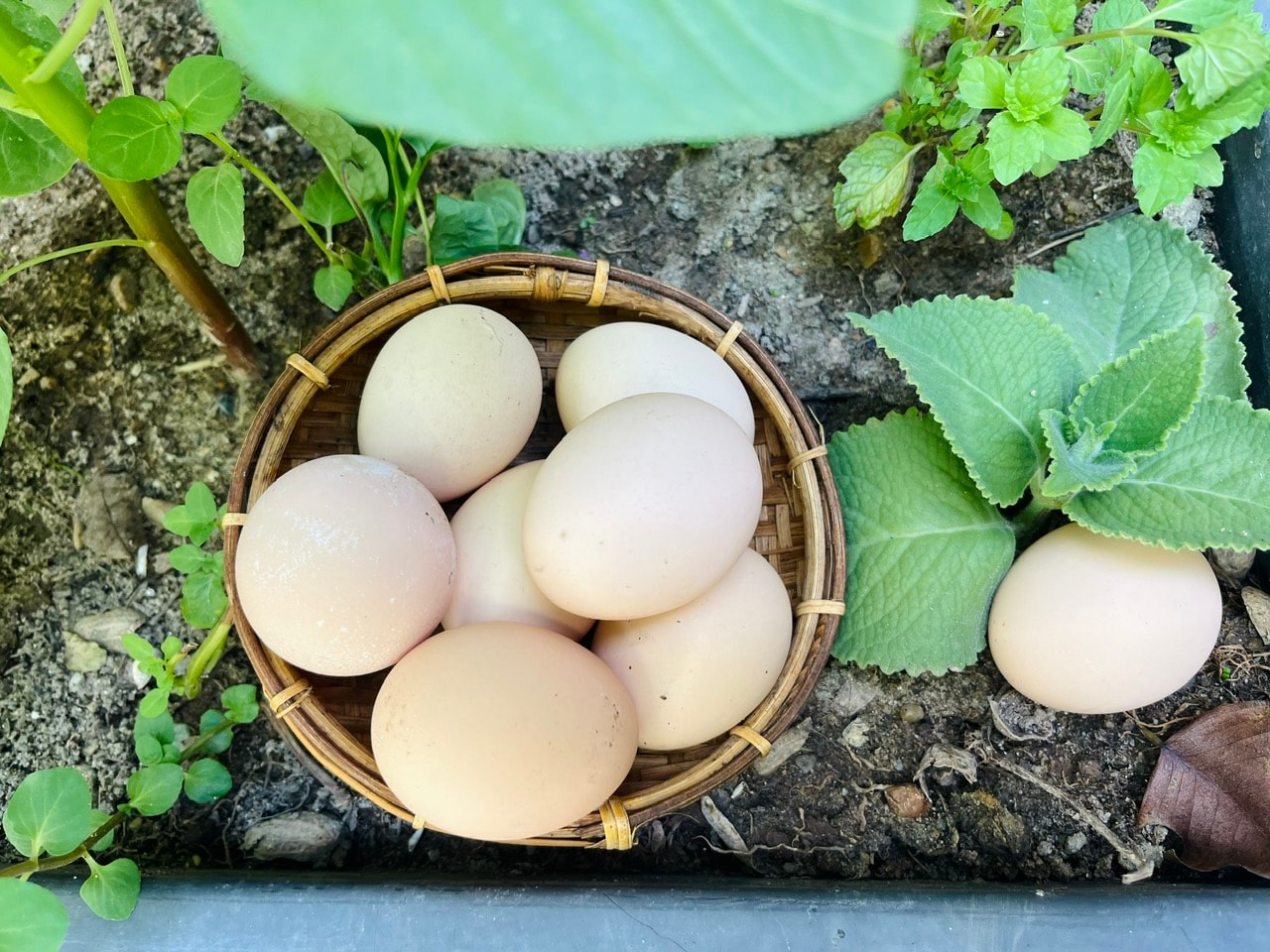
Chicken eggs - delicious, nutritious and cheap
Among poultry eggs, chicken eggs are the most consumed. Not only because of their reasonable price, chicken eggs also have high nutritional content.
A boiled chicken egg (about 50g) provides about 70 calories, contains 6-7g of high-quality protein, full of essential amino acids. Not stopping there, egg yolks contain choline - an important nutrient for brain activity and memory, especially beneficial for pregnant women and the elderly.
In addition, chicken eggs also contain vitamin D (enhances calcium absorption), vitamin A, B12, iron and zinc. Some studies show that consuming one egg a day does not increase the risk of cardiovascular disease, but on the contrary, helps balance cholesterol in a positive way - increasing good cholesterol and reducing bad cholesterol.
However, the important thing is how to prepare it. Boiled eggs are still the top choice because they do not lose nutrients, limit fat and are easy to digest. Absolutely avoid eating raw eggs - not "nutritious" as rumored - but have the potential risk of dangerous salmonella infection.
Good for health
Along with chicken eggs, duck eggs are also rich in energy. A duck egg is larger in size, contains more fat and protein than a chicken egg. Especially rich in calcium, iron and B vitamins, duck eggs help replenish blood, restore health after illness, very suitable for heavy laborers or women after giving birth.
However, due to the high cholesterol content, duck eggs are not suitable for people with a history of cardiovascular disease, high blood fat, and diabetes. Every week, normal people should only eat 2-3 duck eggs.
Balut - a favorite dish of many Vietnamese people - is rich in nutrients but can easily cause "heat" if eaten regularly, especially in the evening or when the body is tired.
Meanwhile, quail eggs are small but “powerful”. By weight, quail eggs contain more iron, vitamin B1, B2 and phosphorus than chicken eggs. Quail eggs also have the advantage of being easy to eat, fragrant and fatty, a favorite dish for children and people who have just recovered from illness. A serving of 4-5 quail eggs per day is reasonable.
Many people think that quail eggs are low in cholesterol because they are small, but in fact, quail eggs also contain relatively high levels of cholesterol, so the dosage should be considered, especially for the elderly.
Goose eggs are also a type of food that has few health benefits. Oriental medicine considers goose eggs to be a cold food, helping to cool down, treat dry coughs and physical weakness. Goose egg yolks are large, fatty, and rich in nutrients, suitable for people with hot constitutions and prone to internal heat. However, similar to duck eggs, goose eggs should not be used too often, only 1-2 eggs/week.
How to eat eggs properly
Although each type of egg has its own advantages, using it incorrectly will turn the advantages into disadvantages. For example, do not eat raw or undercooked eggs. Raw eggs are not only difficult to digest but can also be contaminated with salmonella, causing intestinal poisoning, especially dangerous for children and the elderly.
Eggs should also not be overused. Normal people can eat 3-4 eggs per week, depending on their energy needs. For those who practice sports , the amount can be increased but still needs to be balanced with green vegetables, fiber and fat.
Avoid combining eggs with soy milk, strong tea, persimmons or turtle meat - these combinations can easily cause indigestion and protein precipitation in the stomach.
In addition, eggs should be stored at a stable temperature, not washed before putting them in the refrigerator to avoid losing the natural protective layer, making it easy for bacteria to penetrate.
Eggs are not a “miracle drug” to eat as much as possible. You need to eat properly, moderately and with knowledge to avoid harming yourself.
Source: https://baoquangnam.vn/trung-thuc-pham-binh-dan-bo-duong-3156309.html























































































![[OCOP REVIEW] Tu Duyen Syrup - The essence of herbs from the mountains and forests of Nhu Thanh](https://vphoto.vietnam.vn/thumb/402x226/vietnam/resource/IMAGE/2025/6/5/58ca32fce4ec44039e444fbfae7e75ec)







Comment (0)